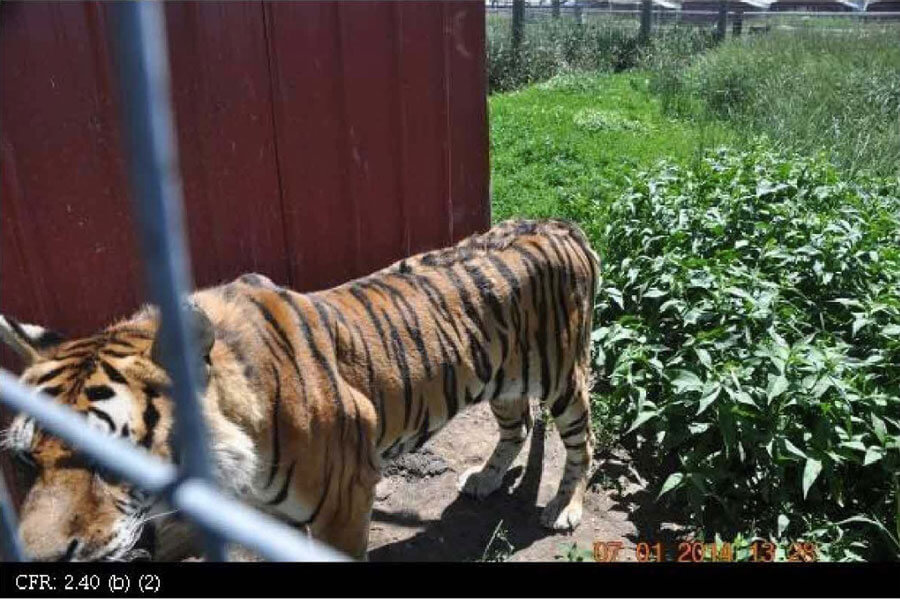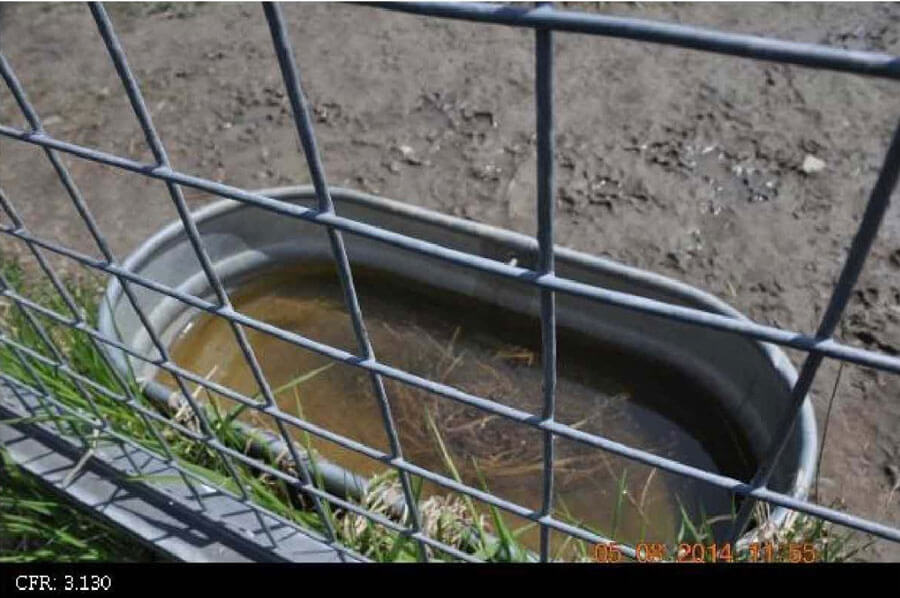Inside a Sham Sanctuary
A PETA eyewitness exposed the conditions inside a Michigan pseudo-sanctuary.
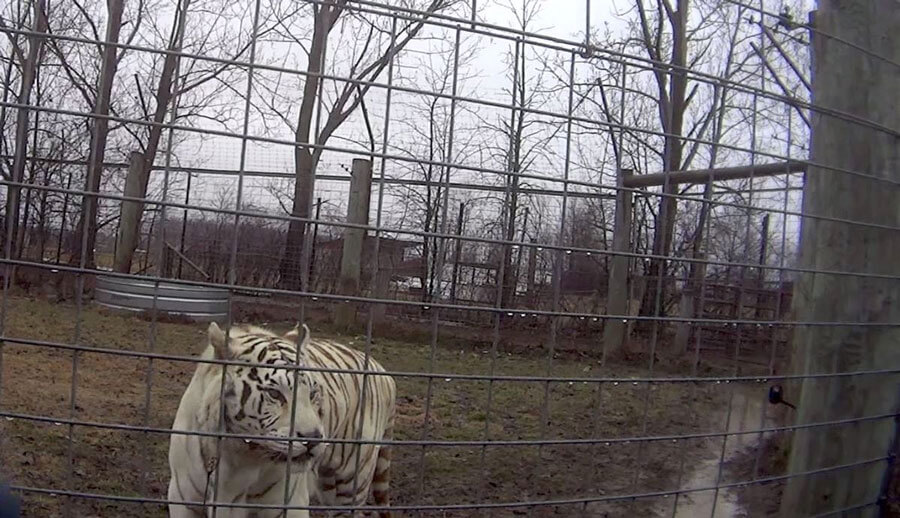
UPDATE: The U.S. Department of Agriculture (USDA) has ordered Summer Wind Farms to close its doors, revoking the roadside zoo’s license and ordering it to transfer many of the animals suffering there to other facilities, effective September 30, 2017. Daisy and Mohan, two tigers who had miserable lives there, were transferred to an accredited sanctuary—just a week after PETA alerted federal authorities that the roadside zoo had failed to provide them with appropriate veterinary care for his painful degenerative joint disease and a condition that caused her to stumble and fall. These tigers have a new lease on life at The Wildcat Sanctuary, complete with the veterinary care that they’ve sorely needed.
Between March and May 2017, an eyewitness volunteered part-time at a facility called Summer Wind Farms Sanctuary in Brown City, Michigan. Despite its name, Summer Wind Farms is not a sanctuary; it’s a roadside zoo. This facility has been cited by the U.S. Department of Agriculture (USDA) for over 200 animal-welfare violations in just three years. Its inspector has stated repeatedly that the owner has an indifferent attitude toward animal welfare—which has fostered a “culture of indifference” at the facility—and that it is “animal cruelty” that “puts all the animals in the facility in danger.”
Tigers Suffered Without Adequate Veterinary Care
Daisy has had a miserable life at Summer Wind Farms.
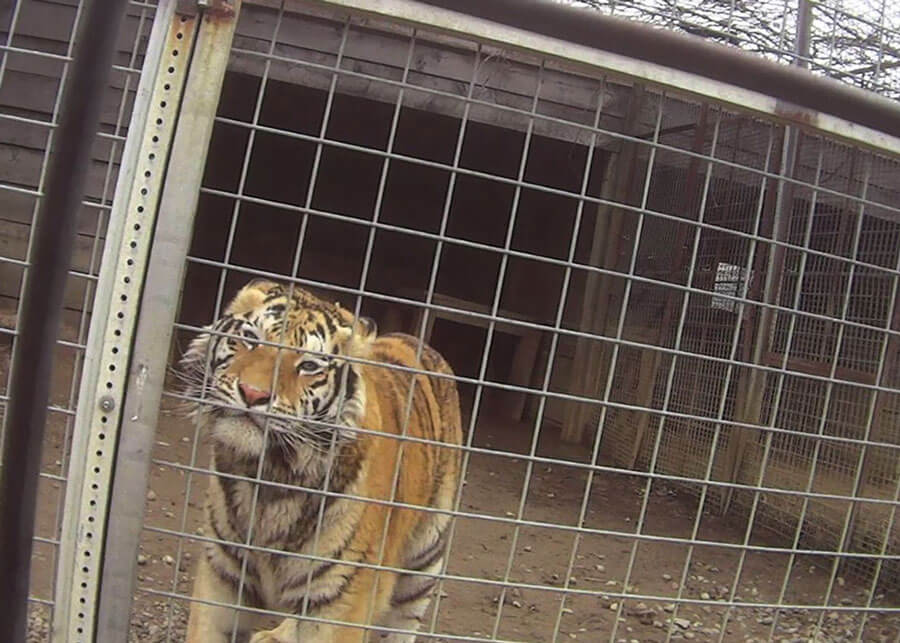
A 2-year-old tiger named Daisy has spent almost her entire life at Summer Wind Farms. According to USDA inspection reports, she has repeatedly been denied proper shelter and veterinary care. In September 2016, she began suffering from a condition that caused her to stumble and fall. According to workers, she also suffered from impaired vision and seizures.
- When Daisy was just 6 months old, USDA inspectors found her in a basement in a small cage that prevented her from getting enough exercise to develop healthy bones, joints, and muscles. Her coat was dull, which inspectors noted could have been from poor nutrition or parasites.
- Three months later, inspectors found that she had been moved to a kennel that smelled so strongly of dog urine that USDA inspectors’ eyes watered. They also noted that the dogs housed there barked incessantly, causing her discomfort.
- Four months after that, inspectors noted that she was unsteady on her feet. Over the next six weeks, her condition deteriorated. She lost weight, her coat was once again dull, and she almost fell several times. Inspectors noted that continued deterioration could lead to additional suffering and possibly death.
- But Daisy’s condition did continue to deteriorate. Workers could only speculate about the cause of her symptoms, blaming everything from distemper or an ear infection to inbreeding or brain damage. Some claimed that the trouble started shortly after she had suffered an abscess caused by biting into a bone that splintered and sent a shard into her brain.
- Summer Wind’s owners acknowledged that they couldn’t afford the diagnostics and treatment that Daisy needed. Despite repeated offers from PETA to help place the animals in reputable sanctuaries, Summer Wind instead considered sending her to another facility with a poor record of animal care, the Exotic Feline Rescue Center (EFRC) in Indiana, where it had already sent three tigers. EFRC has been cited by the USDA for animal-welfare violations so egregious that its license was suspended earlier this year.
- The facility has also discussed moving Daisy into a larger enclosure with a pond, apparently thinking that it would be therapeutic because her back legs appeared to be weak. But according to a PETA wildlife veterinarian, doing so could put her at risk of drowning:
There will be a serious risk of drowning if she is moved into an area with a pond. This tiger appears to have ataxia (loss of coordination), and ataxia does not equal weakness. While the tiger may also have weakness issues, the ataxia is the most concerning issue because this means she does not have complete control of her coordination. She certainly could drown if placed near water and is at even more risk if she has a seizure. During a seizure, she could roll or fall into water, and animals are unconscious during a seizure.
- Reportedly, USDA representatives recently visited Summer Wind and cited the roadside zoo yet again for failing to provide Daisy with proper veterinary care. This time, they asked the owners to consult with a different veterinarian.
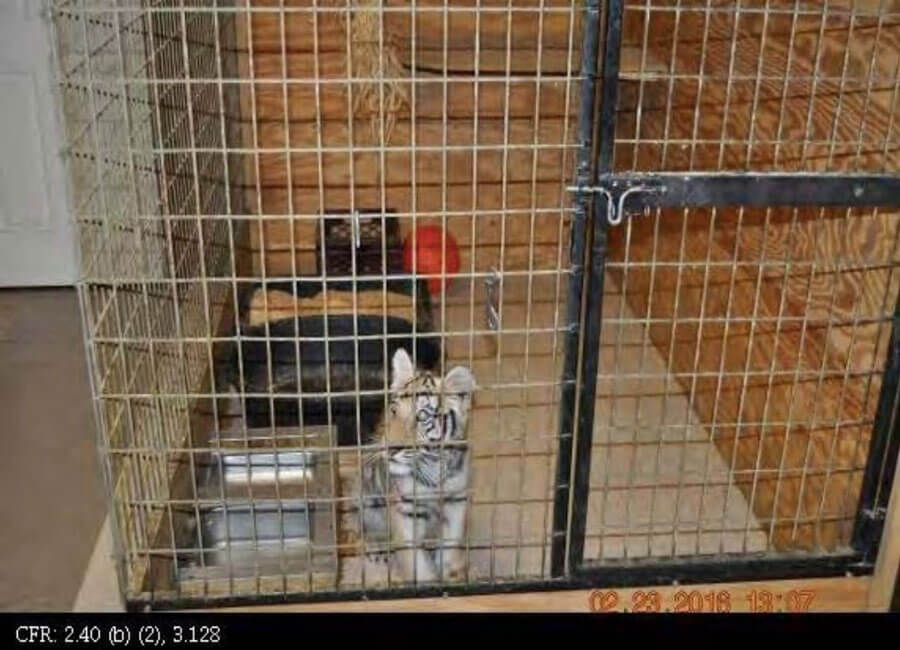
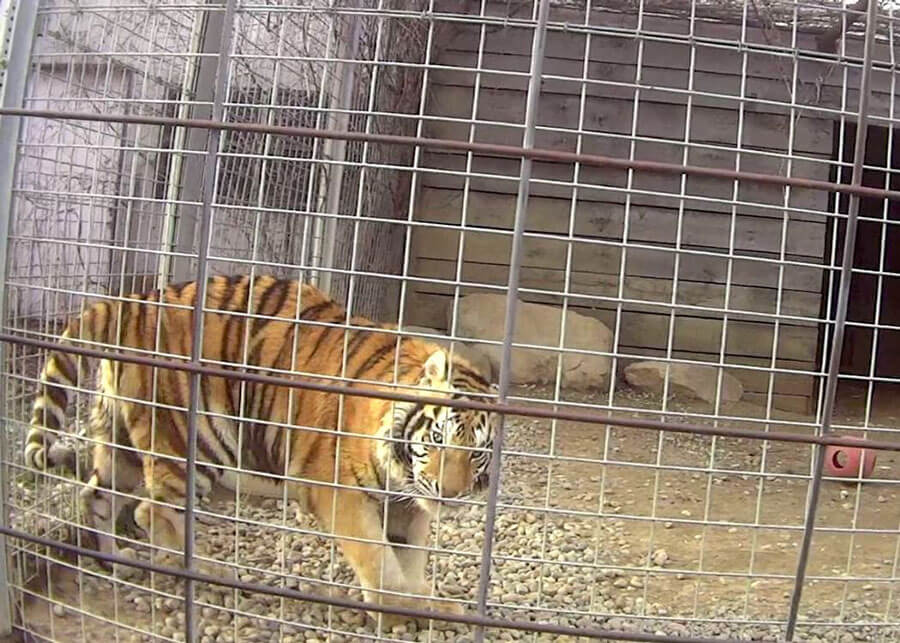
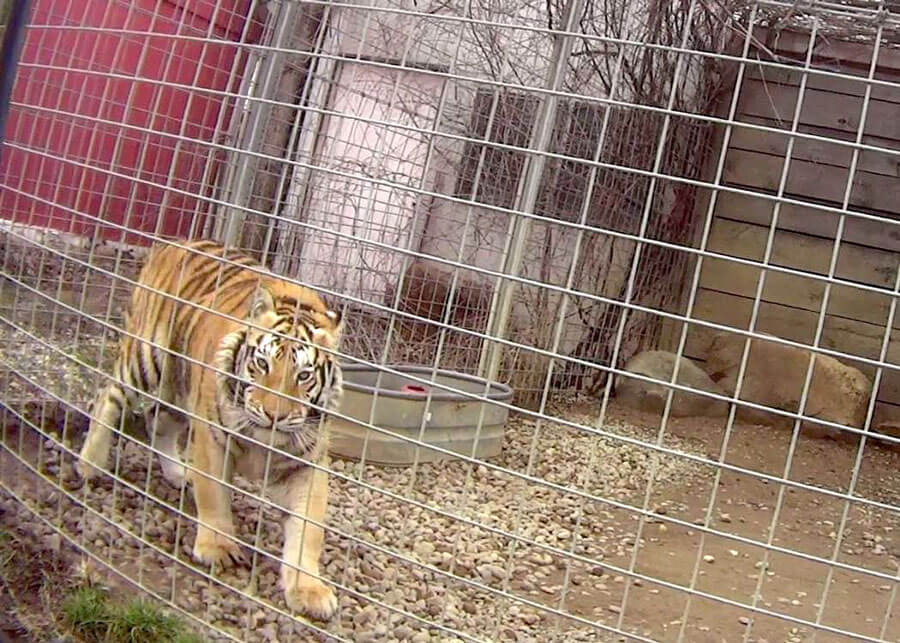
USDA records show Mohan's suffering stretches back for years.
A geriatric tiger named Mohan suffered from what owners said was arthritis and walked with a severely labored gait.
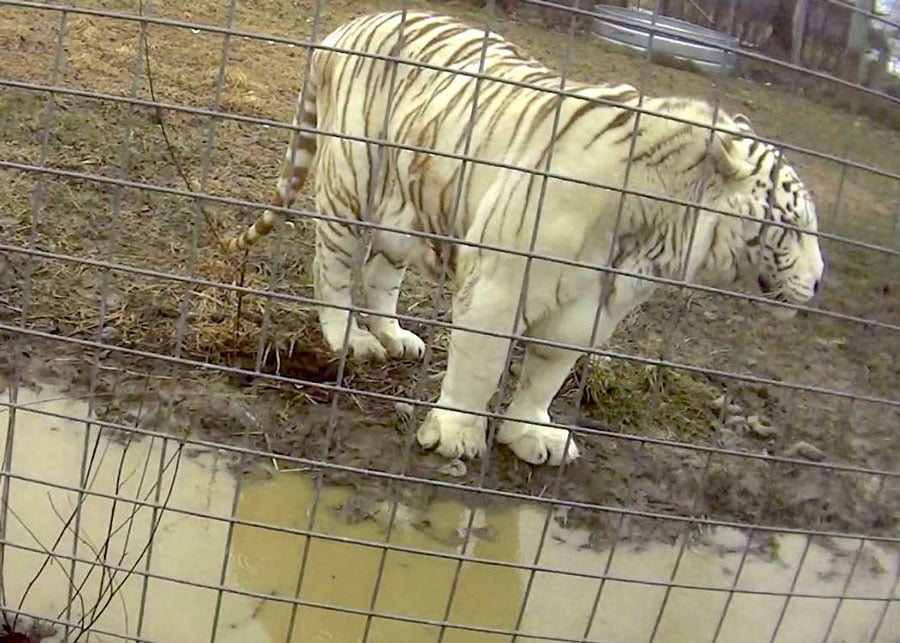
Summer Wind’s owners failed to alleviate Mohan’s suffering. One stated, “There’s not a whole lot you can do about arthritis,” and that arthritis medications may or may not work. He said, “As long as they’re eating, drinking, and defecating, moving around, they’re all right.” The other owner said that the tiger receives a “rub” with “vitamins” and that there is medicine for arthritis “if they need it,” but it didn’t appear that Mohan was on a regular regimen of medication to relieve his pain. Though the owners believed Mohan had arthritis, they’ve recently claimed he’s actually been suffering from torn ligaments—a treatable condition for which he apparently unnecessarily suffered because of Summer Wind’s chronic neglect.
Just two years earlier, the USDA had cited Summer Wind twice within two days for failing to provide Mohan with enough bedding, even though the temperatures were expected to drop below zero by the second visit. It also later cited the facility for failing even to notice that Mohan had a raw lesion on his side, which inspectors said could become infected and painful without veterinary treatment.
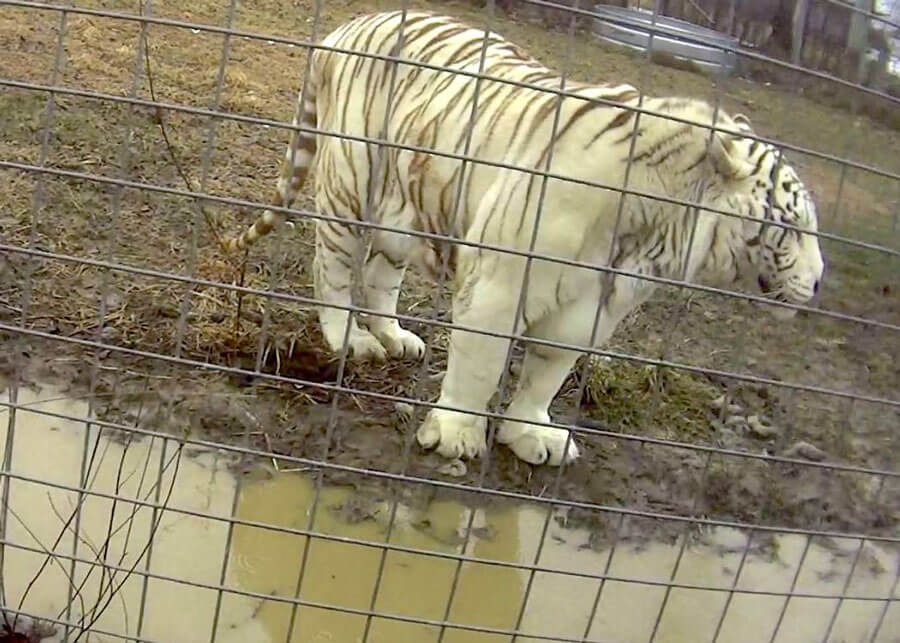
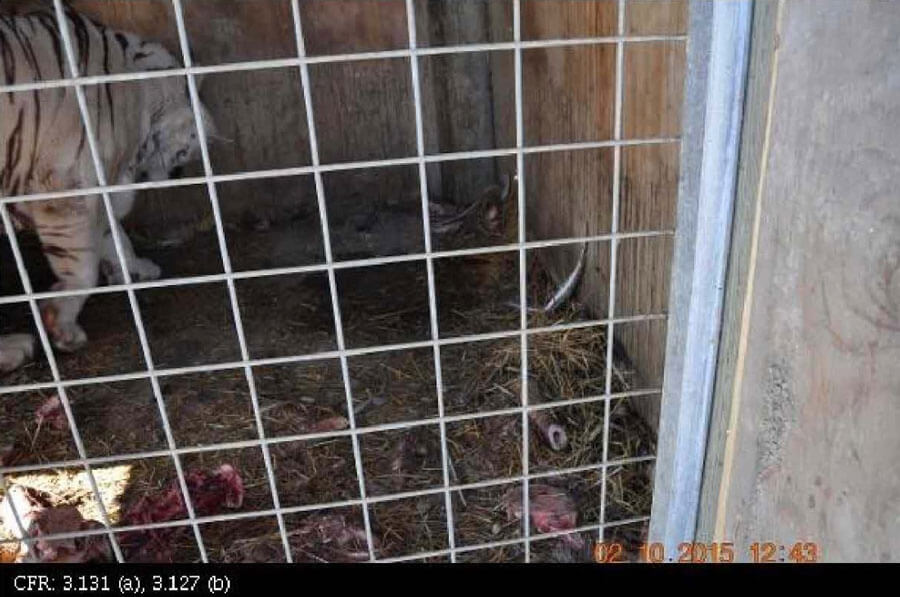
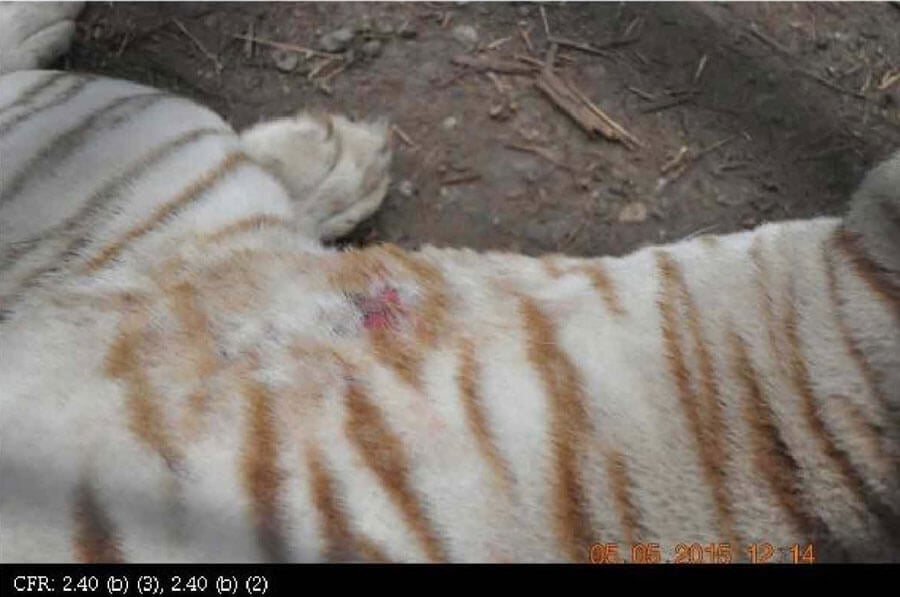
'A Culture of Indifference'
The USDA has repeatedly cited Summer Wind for not employing enough workers and failing to train volunteers adequately. Inspectors have warned that a lack of properly trained employees can lead to conditions that result in animal suffering.
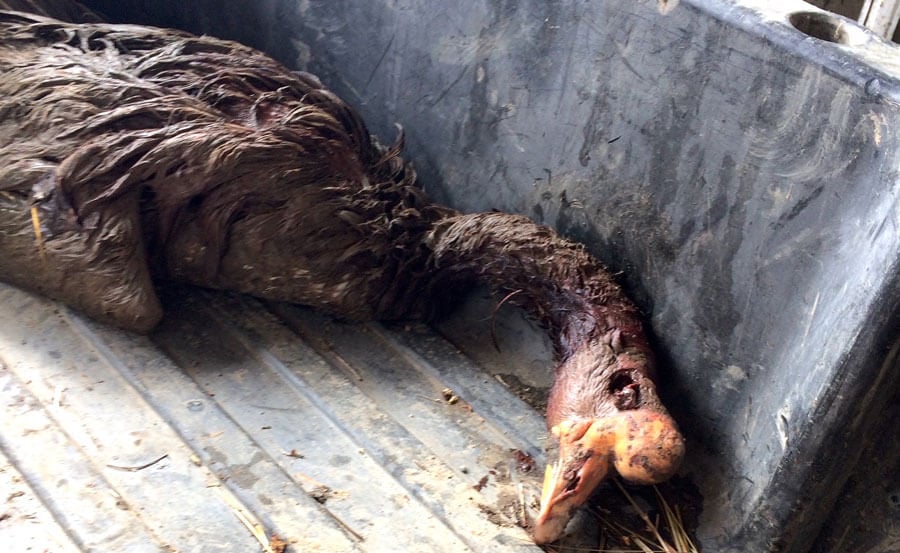
- One male goose was killed by another, larger male goose after the facility owners asked volunteers to remove the larger one from his flock and replace him with the rival. Male geese are known to fight over females, and the owners apparently knew the geese were incompatible but nevertheless left them separated by just a low fence. Overnight, the displaced goose returned to his former cage and presumably attacked and killed the rival male. The deceased goose’s head was raw and bloody, and he was pressed up against a wall smeared with blood. The owner’s reaction to the fatality was, “Ah … OK. Not much we can do about it.”
- The owner said that a coyote in the roadside zoo had killed a cagemate because volunteers didn’t know that they needed to feed them separately.
Animals were found in cramped cages or muddy pens, and some suffered from psychological distress.
- An Asiatic black bear’s head repeatedly swayed back and forth, and two young brown bears were seen rapidly and continuously pacing on multiple occasions.
- Several animals, including juvenile bears, tigers, geese, and a cougar, were housed in excessively muddy pens with standing water.
- A horse had a large, likely painful, crack in one hoof.
- Two macaques, who are very social primates, were kept isolated and couldn’t see or touch each other.
- Two foxes were confined to a cramped, inadequate cage.
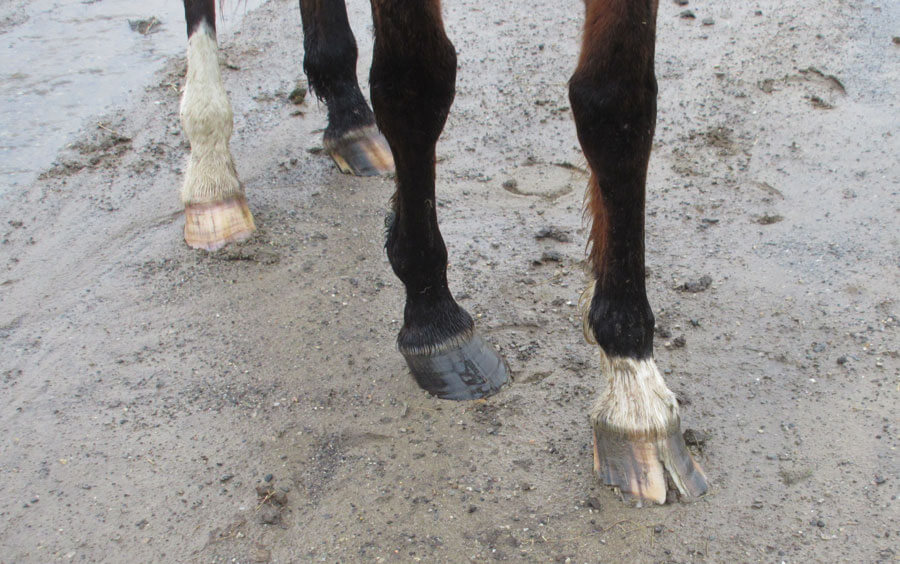
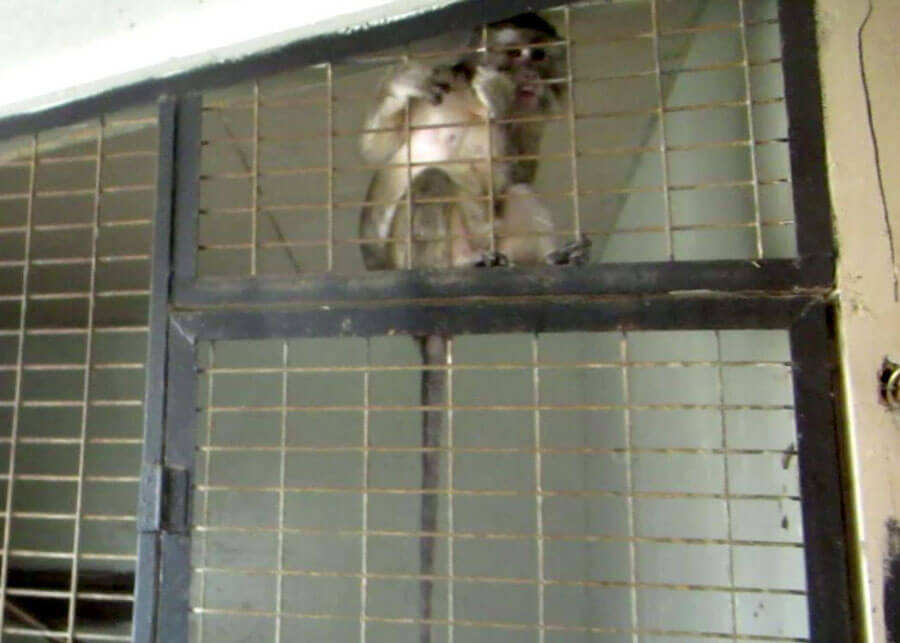
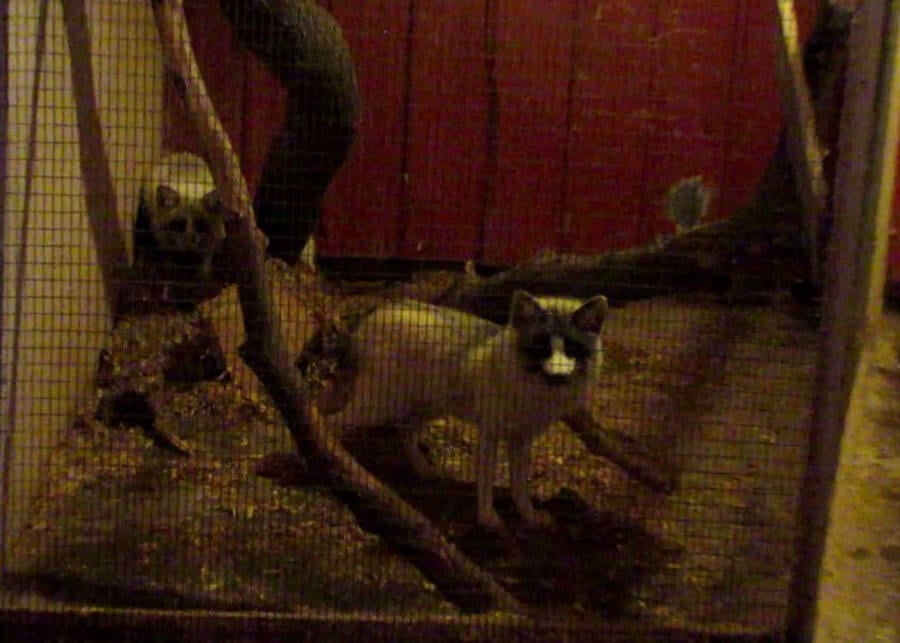
Entrenched Suffering
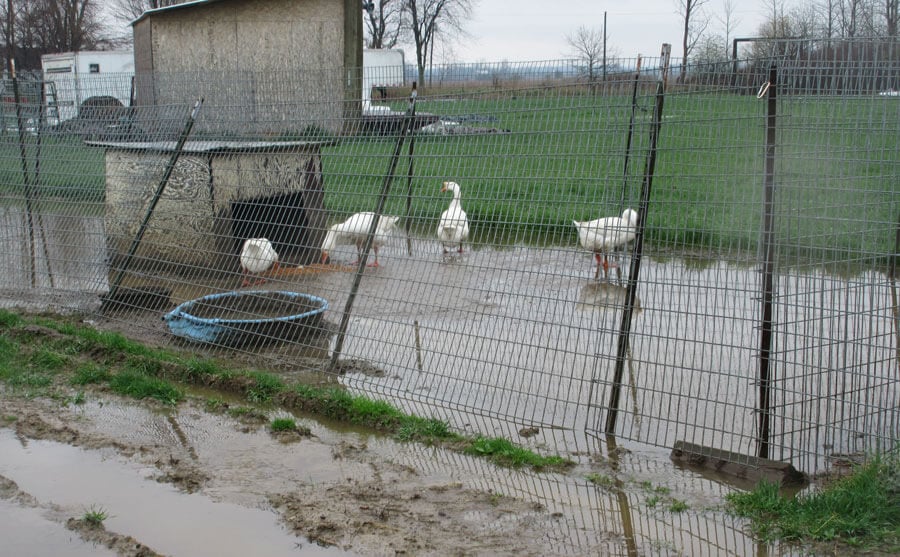
Over and over again, Summer Wind Farms has put animals at risk. Last year the USDA cited the roadside zoo for failing to provide three endangered ring-tailed lemurs, who appeared thin and had sparse coats, with veterinary care—all three of these primates have since died, including one who was only 7 years old and had become partially paralyzed. Enclosures for Asiatic black bears and American black bears were strewn with feces. A grizzly bear’s water was covered with algae, and a meat cooler had the same stench of rotten and decaying meat that had already been noted in inspection reports dating back years.
Instead of following proper guidelines for euthanizing animals, a tiger named JJ was shot in the head. On another occasion, instead of calling in a veterinarian, the owner of Summer Wind Farms improperly injected euthanasia solution into the muscles of two animals, which can result in prolonged suffering and undue distress. A USDA inspector also found a wire cage with four young cats in it but no food, water, or litterbox. When given water, the cats drank for three minutes without stopping.
In 2016, the USDA filed a formal complaint against the facility alleging over 200 willful violations of the federal Animal Welfare Act in four years, beginning an enforcement proceeding that could result in revocation of the roadside zoo’s exhibitor’s license. A hearing will be held in July 2017.
